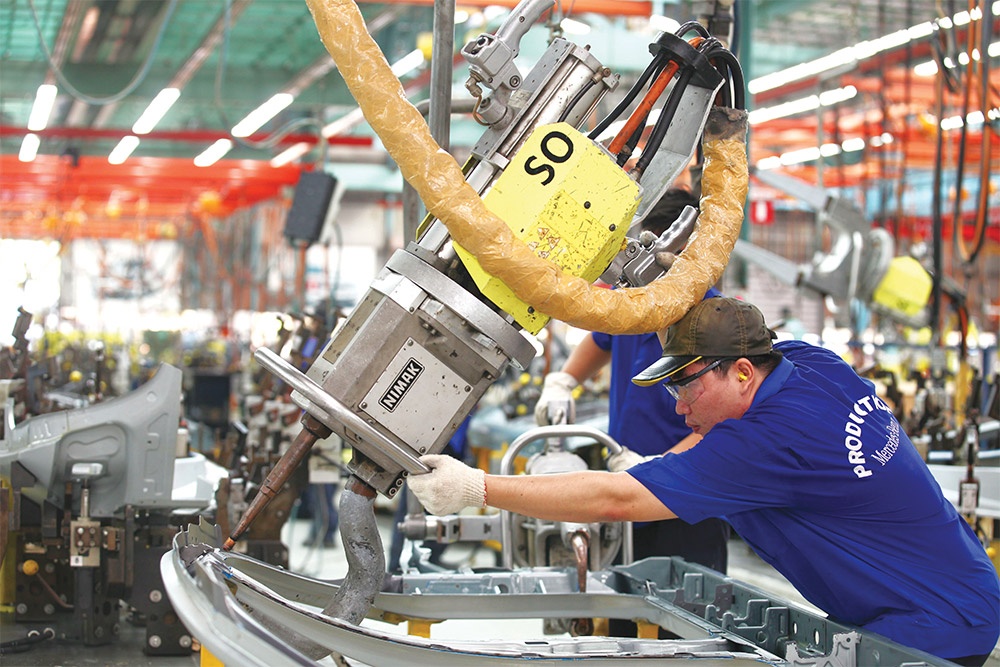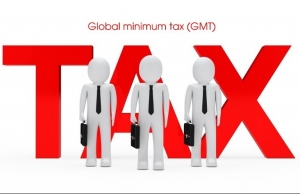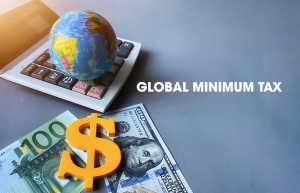Mission now clear in journey to adapt to GMT rate
 |
| Mission now clear in journey to adapt to GMT rate, illustration photo |
Last week, in a meeting with a foreign-invested enterprise, Deputy Minister of Planning and Investment Nguyen Thi Bich Ngoc said that the ministry (MPI) was drafting a decree guiding the implementation of a top-up tax under the Global Anti-Base Erosion Rules.
“This is a new and complex issue, synthesising international experience to develop preferential policies for key foreign investors in Vietnam,” Ngoc said. “In addition to investment capital and revenue, we will consider such factors as investment in research and development (R&D), and links with more domestic businesses in the supply chain.”
She said that the scope of the policy was concentrated and targeted, but the scale of criteria was considerable, so the MPI needed to take time to research and develop. Soon, the MPI will organise numerous meetings with large domestic and foreign corporations, and listen to their recommendations, suggestions, and practical experiences in other countries.
With this in mind, the MPI has just started to review all the policies and legal provisions related to investment incentives. The first draft of the overall review report on encouraging investment policies has just been released for consultation with ministries, agencies, localities, experts, and businesses across the country.
The need to review and revise investment incentive policies has been raised recently due to the global minimum tax (GMT) being applied from 2024 in countries, along with fierce competition to pull in foreign investment worldwide. Developed countries have also issued many preferential policies and subsidies on land, electricity and water, investment, and taxes to bring foreign investment flows back to the country.
“Every country has their calculations and formulate policies to respond to the GMT, raising a new race for preferential policies after the GMT,” the MPI said.
Investment incentives through corporate income tax exemptions are powerful weapons for not only Vietnam but many other developing countries to draw in a large amount of foreign direct investment.
To entice multinational corporations, in August 2021 the government issued special incentives that, at the maximum level, allowed a foreign-invested project to pay just 5 per cent of corporate income tax for 37 years, while the popular tax rate was 20 per cent. However, the application of GMT has removed all these incentives’ effects.
“Vietnam needs to study and provide new investment incentives, such as the United States and South Korea are doing, not only corporate income tax but also other incentives related to investment costs, and even cash support,” said Hong Sun, chairman of the Korean Chamber of Business in Vietnam.
At the same time, Deloitte Vietnam said that the country should issue incentives and policies based on investment costs to support multinational corporations suffering due to the GMT.
“Incentives based on corporate income are easy to manage because they will be declared at the end of the year when taxes are calculated, without any arising issues like pre-paid amounts from the state budget. It is also easy to welcome new investors and generate small profits early on, but this includes the risks of price transfer, and sending profits to countries with larger profit-based incentives,” said Thomas McClelland, Deloitte Vietnam’s country tax leader.
This is also the concern of Vietnamese policymakers. In the overall review report on encouraging investment policies, the MPI said that current incentives were not diversified, and only based on corporate income, without any cost-based incentives. This is not useful to call for practical and long-term investment. It even could be counterproductive due to the poor management by the taxation authorities.
The ministry also pointed out numerous shortcomings, such as not matching advanced policies, and international practices, especially where the GMT has already taken effect.
The ministry is worried that the GMT will significantly impact the decision to expand projects, reducing the attraction of Vietnamese destinations to new investors, and even impact suppliers in the supply chains of top manufacturers, such as Samsung, LG, and Honda.
To overcome these concerns, a new investment incentive is being deemed an essential solution. Various pathways have been outlined by the MPI, including outstanding, targeting, and selective incentives to support strategic investors, and welcoming high-quality projects, especially in high technology and R&D.
 | Vietnam will remain FDI magnet with global minimum tax in place On November 29, the National Assembly of Vietnam approved a resolution on applying additional corporate income tax following the Global Anti-Base Erosion Rules, which is expected to have an impact on foreign direct investment (FDI) inflows into Vietnam. |
 | Vietnam primed for GMT adoption With a long-awaited resolution adopted by the legislature, Vietnam now has a legal framework for applying top-up corporate income tax under a new international system. |
 | Vietnam races to stay competitive with new GMT The international community is speeding towards the implementation of a global minimum tax, and Vietnam is no exception. With countries around the world revamping their tax systems, Vietnam must also navigate this new landscape in order to stay competitive and draw in new foreign investment. |
 | The tax policy impact on luring in fresh investment New tax policies in recent years have contributed significantly to building confidence from foreign investors and creating a competitive and sustainable business environment, directly contributing to Vietnam’s foreign investment growth in 2023. |
What the stars mean:
★ Poor ★ ★ Promising ★★★ Good ★★★★ Very good ★★★★★ Exceptional
Related Contents
Latest News
More News
- Hermes joins Long Thanh cargo terminal development (February 04, 2026 | 15:59)
- SCG enhances production and distribution in Vietnam (February 04, 2026 | 08:00)
- UNIVACCO strengthens Asia expansion with Vietnam facility (February 03, 2026 | 08:00)
- Cai Mep Ha Port project wins approval with $1.95bn investment (February 02, 2026 | 16:17)
- Repositioning Vietnam in Asia’s manufacturing race (February 02, 2026 | 16:00)
- Manufacturing growth remains solid in early 2026 (February 02, 2026 | 15:28)
- Navigating venture capital trends across the continent (February 02, 2026 | 14:00)
- Motivations to achieve high growth (February 02, 2026 | 11:00)
- Capacity and regulations among British areas of expertise in IFCs (February 02, 2026 | 09:09)
- Transition underway in German investment across Vietnam (February 02, 2026 | 08:00)

 Tag:
Tag:


















 Mobile Version
Mobile Version